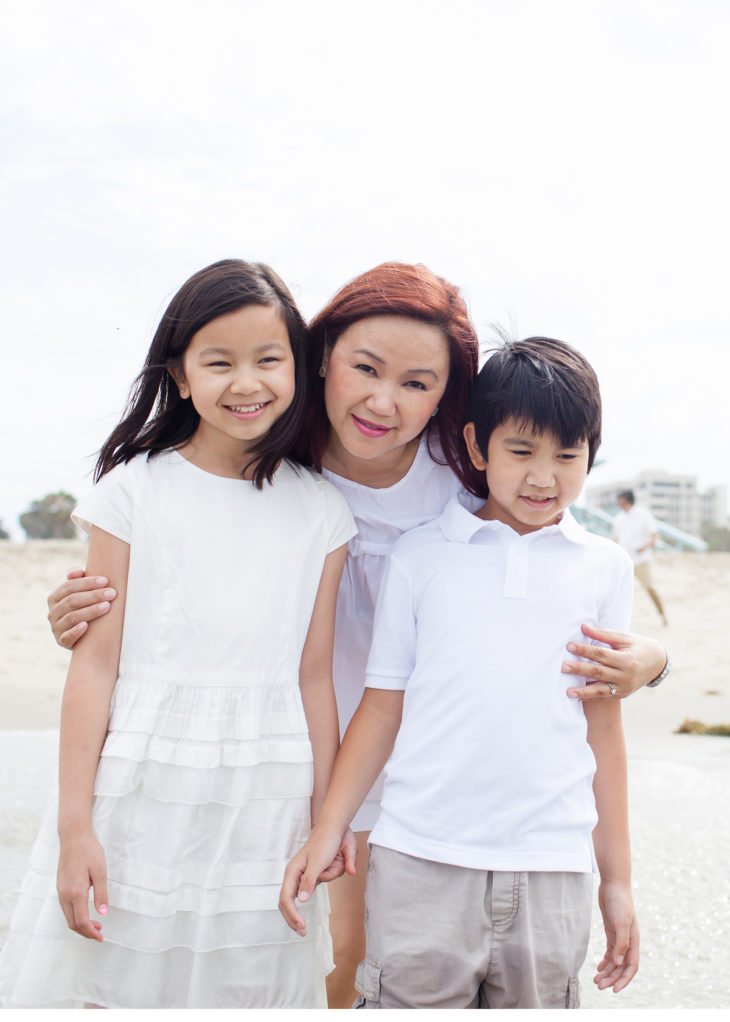
Today is Autism Awareness Day, and we are honored to bring you a personal interview with Tammy Tran Nguyen, the founder of a nonprofit organization called KNOWAutism.
After Tammy’s son Reagan was diagnosed with autism, she was inspired to found KNOWAutism which is dedicated to helping families of children with Autism Spectrum Disorder (ASD). Autism now affects 1 in 59 children in the United States, and because it looks different for every child, it’s not always easy to diagnose. Through KNOWAutism, Tammy is able to share her own family’s journey and to guide others who are going through the diagnosis and treatment process. Her road wasn’t easy and through her organization she is helping others avoid some of the same hardships that she encountered, as well as helping to fund the very expensive treatments and diagnostic process. Her story of motherhood and perseverance is inspiring and encouraging regardless of a personal connection to autism, and we know that you will be moved by her words!
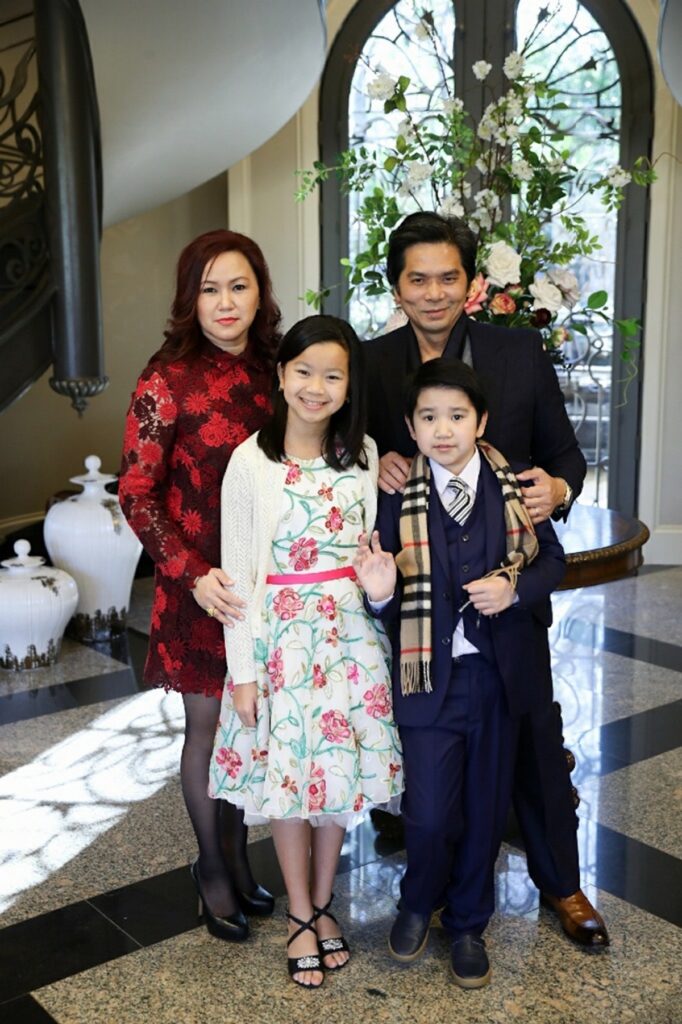
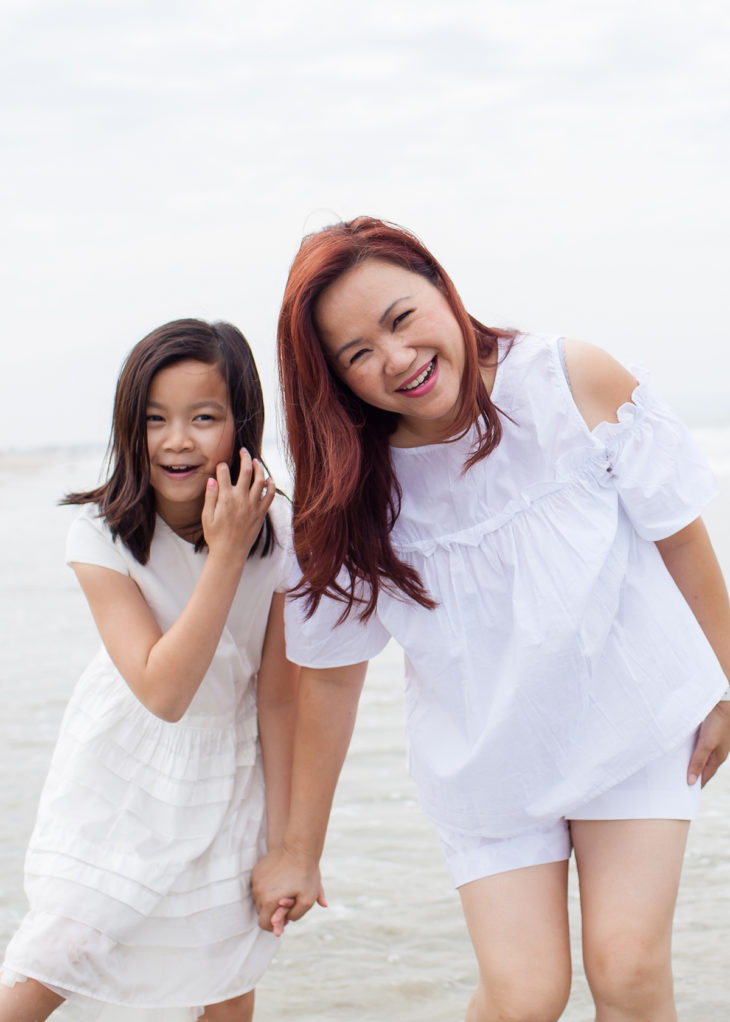
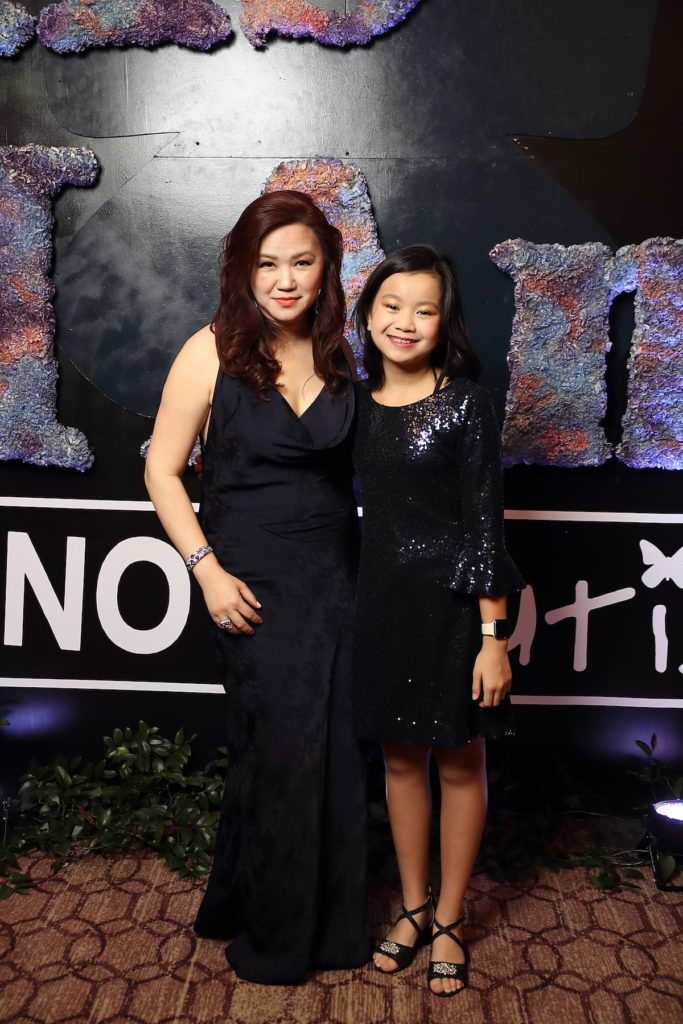

Tell us a little about yourself, where you are from and your background.
Tammy: I am the daughter of two Vietnamese-Chinese immigrants. I graduated from University of Texas at Austin and University of Houston Law Center. I worked for a couple of big corporations before deciding that I am not the corporate type. I started my own real estate investment firm and eventually took over our family business as well. I have worked all my life and love to work.
I do feel that a woman has two lives; one before marriage and one after. I was known as Tammy Tran, then Tammy Tran Nguyen. After I had my daughter, I was known as Julia’s mom. Now, I am known as the autism mom.
Tell us about your journey with being a mother to a child with autism to the founder your non-profit KNOWAutism Foundation
Tammy: Our son Reagan was 18 months old when we realized something was different about him. We were not sure what it was, but autism never entered our minds. This was in 2010 when resources were not as accessible as they are now. He had multiple ear infections and we thought those were what caused his speech delays and meltdowns.
His teachers at school knew, but they were too kind and afraid to tell us directly. We were also in denial. We moved from one preschool to another. After three preschools in one year, he ended up at home with me. We took him to speech therapy and occupational therapy, but I refused to have him diagnosed. One day the therapists sat us down for an intervention and recommended that we take our son to a more “structured environment”. That is the code word for “autism”.
I was upset — I cried and cried. The next day, I called to schedule an appointment to have him diagnosed. I was shocked that it took three months before our son could see a doctor. It took another three weeks before we had the report. The doctor gave us a diagnosis of Autism Spectrum Disorder (ASD) on the same day after four hours of testing.
I remembered being completely silent on the drive home, and then I carried on the day like normal. After everyone went to bed I went to the bathroom and cried uncontrollably. I cried all night. I asked God all kinds of questions. Mainly, “Why me?”, “Why us?”, and “Why our son?”
The next morning, I called every single special needs school in Houston. The head of school from The Westview School called back within two hours. They became the guiding light of our journey. Our son was placed in the school within a few weeks. Even though life was hard going from one therapy session to another and then to school, the world started to make sense again.
Looking back I know that if we had not been in denial and had our son diagnosed earlier, it would have been better and easier for both our son and us. We started KNOWAutism Foundation to promote autism awareness and to provide education and resources to other families affected by autism.
Our first KNOWAutism kickoff reception in 2013 was to raise funds to help launch an autism diagnostic center to shorten the wait time in Houston. Our first fundraising gala in 2015 was dedicated to raising funds for our autism diagnostic assistance program which helps families pay for the expensive testing process. At the time this process was not covered by most insurance companies. We raised a jaw-dropping $225,000, and the rest is history.
Can you tell us more about how has being a mom to a child with autism impacted your life, both in terms of your outlook and your day to day as a working mom?
Tammy: Autism was an unplanned journey for our family. I had to take a much less active role in my companies to support our son. My husband is now solely responsible for financially supporting our family and our evolving needs. Our lives have changed completely. Our daughter’s life is not the same as her classmates’ lives. She realizes that now we have to plan for every gathering. Going to the mall is no longer simple. Eating out is no longer easy. The theater is off limits. Piano recital is difficult. There are things we can do together as a whole family, and there are things that we have to do separately. For example, only one of us can attend our daughter’s piano and voice recitals. She knows that we don’t bring her brother to a ballet or an opera out of respect for other guests because he cannot sit still for three hours.
Being a parent to a child with autism is not something that I will ever wish upon anyone, however, we would not trade our son for anything in the world. He is the joy of our lives. He is handsome and his smile is contagious. His heart is pure. He has taught us how to be better parents and better human beings. He has helped us understand that being different does not mean being less. He has shown us the importance of acceptance. Because of him, we appreciate the little things in life. We celebrate every little milestone and no longer take anything for granted.
What were the early signs and what was the diagnosis process like?
Tammy: Autism spectrum disorders (ASD) is a complicated neurological disorder that is characterized by repetitive patterns of behavior, interests, and problems in social interactions. Children with autism are typically delayed in communications and have learning difficulties. Each child is different, but you can look for potential red flags such as not responding to their name by 12 months of age, avoiding eye contact, not pointing, not waving goodbye, engaging in repetitive behaviors such as flapping their hands, rocking their body or spinning in circles, and delayed language skills. If a child shows those signs and does not meet learning milestones, then it is best to schedule an autism screening with a doctor.
A formal diagnosis should be conducted by a developmental pediatrician, a neurologist, a psychiatrist, or a psychologist. The process starts with an intake interview with both parents and then a comprehensive evaluation with the child that can take up to eight hours. Evaluation forms from teachers and caretakers are also required for a more comprehensive and accurate evaluation. The process will take three to four weeks from testing to reporting. The most difficult part of this process is the long waiting list. It may take up to six months to get an appointment, and it costs anywhere from $1,500 to $2,500.
What is it like being a mom to neurotypical girl and a child with autism at the same time?
Tammy: They say that being a parent is the most difficult and yet most rewarding job in the world. This is so true. My husband and I have the privilege and the challenge of being parents to two very different children. It is like having two majors in college, one in business and one in science. Unfortunately, we don’t have the benefit of applying what we learned from our mistakes with our first child Julia to our second child Reagan. Our kids are very different — they learn differently, see the world differently, have different needs and interests, and they go to different schools.
What does your schedule look like on a day to day basis?
Tammy: My day starts at 6 a.m. and I drop Julia at school by 7:30 a.m. I’m home by 8:00 a.m. to get Reagan ready for his day. He has a very limited diet; he drinks milk and eats a vanilla yogurt and a croissant. It cannot be any croissant, it has to be a croissant from Starbucks. Yes, he knows the difference. He can shower himself, brush his teeth and get dressed, but with supervision. He still has no concept of time. We leave for his speech therapy at 8:30 a.m. and get there by 9:00 a.m. After an hour of speech therapy, we drive another 30 minutes to his ABA Center by 10:30 a.m. where he ends his day at 5:00 p.m. My daughter gets out of school at 3:45 p.m. She also has different athletic commitments that last until 8:00 p.m. on different days of the week. My only time to work is between 10:30 a.m. to 3:00 p.m. The rest of the day is devoted to our children. Wayne helps out as much as he can, but he has several businesses to run.
What are Reagan’s favorite activities?
Tammy: Reagan loves technology and playing with the iPhone and iPad. He also loves his Disney movies. He can be entertained by screens for hours, but we try to limit his screen time as much as possible. When he gets home, we will give him an hour of free play where he gets to do anything he wants. After dinner, we will give him play-doh and encourage him to play with arts & crafts, work on puzzles, and read a book. Reading is definitely not his favorite activity. Swimming is his favorite sport and during the summer he loves to swim, sometimes for hours.
What is it like to travel with a child who has autism?
Tammy: Traveling used to be very stressful. It is hard to explain to an autistic boy why we need to stand in the security line for hours. It is also very difficult for an autistic child to express their pain and frustration because of their limited language abilities. My greatest fear was that we would get kicked off a plane. Travelers can be very insensitive as they have their own stresses. We try to reduce our own stress by being prepared. Everyone in the family has a separate task. Dad is responsible for all the luggage. Daughter is responsible for herself and not getting lost. I’m responsible for Reagan. We are like a small military unit.
We ask Reagan to carry his own backpack with all his favorite things, like his blanket, stuffed animals, favorite book, DVDs, and play-doh. The backpack acts as a weighted blanket and helps with his anxiety. He is very particular with food so we pack his favorite snacks like grapes, Goldfish, raisin bread and chips. I always take Starburst candies so he can chew them when we are taking off and landing to help him deal with air pressure.
We purchase three seats in a row and one in the front. Dad sits in front of Reagan so that he can move the tray table as many times as he wants without us having to apologize constantly to the person in the front seat.
We saw dramatic growth during our most recent trip. He is willing to wear headphones and watch movies for three hours. He loves the window seat and watches the plane take off and land. Although it was hard at first, I would encourage families to travel as often as they can.
What other programs does KNOWAutism have to help families who have children with autism?
Tammy: Our mission is to promote autism awareness and to provide resources to families affected by autism. We have programs where we provide direct financial assistance to families to help them with the cost of therapies, testing, tuitions and special interests. We also partner with different organizations to further their special needs programs. We partnered with Theaters Under The Stars / The River to take their inclusive arts program to public schools in Houston. We also supported The Houston Ballet with their Adaptive Dance Program.
Although there isn’t a cure for autism, there are various specialists and treatments that can help. Have you seen success for your own child and for others with any specific treatment methods?
Tammy: Different children need different support. A child with delayed speech will need speech therapy, while another child will need both speech and occupational therapy. Some will need behavioral therapies for autism known as applied behavior analysis (ABA) which is a highly structured, scientific approach that teaches play, communication, self-care, academic and social living skills and reduces problematic behaviors. This therapy is the most researched intervention for autism. Research shows that it improves the long term outcome for children with autism. There is also oral-motor therapy, music therapy, and the list goes on.
Our son has had all of the above therapies at certain points in his life. We are very fortunate that we can afford these therapies. We are also blessed that I have control of my schedule where I can drive him to these therapies. We have seen growth in him. We are happy that he is still learning and improving, at his own pace.
You can learn more about autism at our website: www.know-autism.org and by talking to a doctor.
What message and information do you most hope to teach the world about autism?
Tammy: When our son was diagnosed with autism, I felt that I knew all the words to describe autism but I did not understand it. It took me a really long time to truly know what autism is. When I started KNOWAutism, it was my hope that everyone could “know” what autism is and would be able to identify the symptoms like you would with a common cold. I hope that through understanding it we can develop acceptance and inclusion for those who are affected by autism.
What advice / words of encouragement do you have for parents of a child with autism?
Tammy: It has been eight years since our son was diagnosed with autism and I am still learning and adapting each day. I do not think I can give advice to other parents yet. If I could go back in time, I would tell my younger self “Don’t cry. Don’t stress. Everything will be alright. You got this. It can only get better.”
How can we best support children in our communities who have autism and their families?
Tammy: Financial support is always a great way, but taking the initiative to understand what is autism is also very important. Only through understanding can we develop acceptance and inclusion for families affected by autism. It’s also impactful to make minor accommodations for families with children with autism whenever possible — such as asking for dietary preference, putting away sensory distracting items, and providing sensory friendly toys. The ripple affects of the small things can be extraordinary.
Do you have any follow up questions for Tammy about autism, her organization, or her personal journey? Please drop her a line in the comments below.








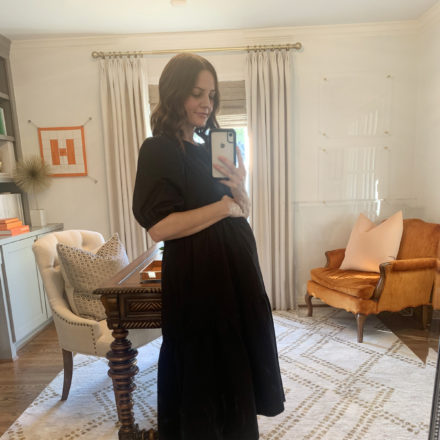
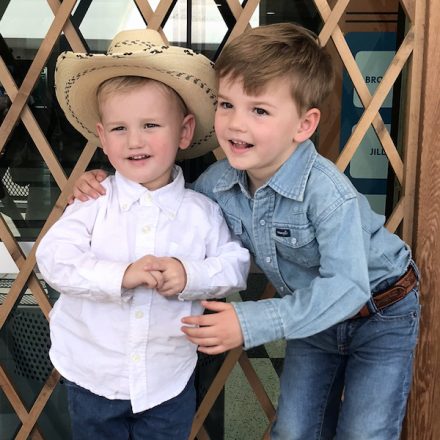
Thank you for sharing and for being such a strong woman! Your organization helped my son financially with his therapy and we are grateful. Autism is hard but it also taught me patience, and able to see life differently.
Debra,
I am so glad that we can support. Keep up the good work. I believe every mom is a SHERO, and Mother’s Day should be a month-long celebration instead of just one day.
Hello,
A piece of wonderful information. Is KnowAutism working internationally or it has a limited scope?
Regards,
Khurram Shahzad
Khurram,
KNOWAutism is a local organization. However, we have helped families all over the country. We funded testing for a school in Mexico. Sending us an email if you need anything, and we’ll do our best with our funding and resources to help.
Hi! I have been in the ABA field for over 15 years, and still am in awe of little public still understand about Autism and acceptance of how it affects our children. Thank you for talking and disseminating the information to others!! There is a lot of battles that we need to fight and win for our children, adolescence, and adults who are diagnosed with Autism!
Thu,
Please note that you are making a difference each day. We appreciate your work, sometimes more than you know. Thank you!
Great article to include to spread awareness to other moms. I’m a teacher and work with students who have autism and this is something that does impact the entire school and community. Thank you for raising awareness!!
Samantha,
Teachers are so important, especially in helping with early detection. Your work is not easy. Thank you for your patience and love for this group of children who cannot always speak for themselves.